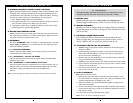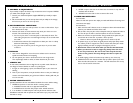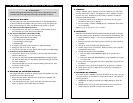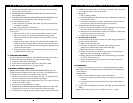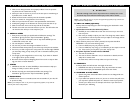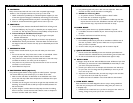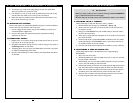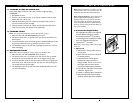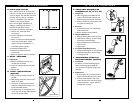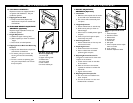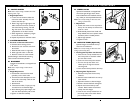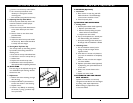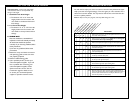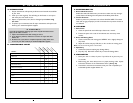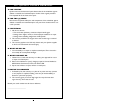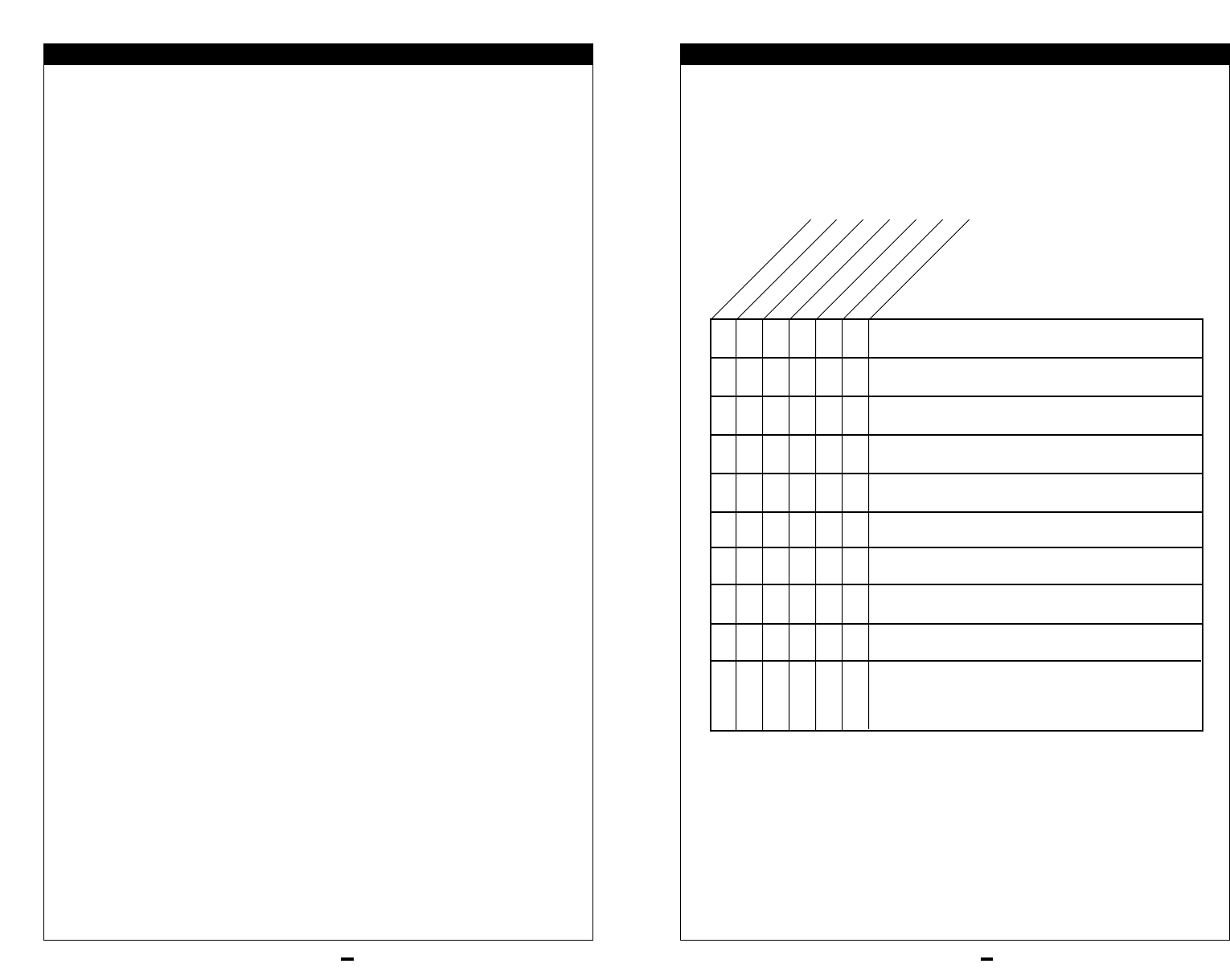
33
You will need to adjust your chair from time to time for best performance (espe-
cially if you alter the original settings). This chart gives you a first solution, then a
second and a third if needed. You may need to look farther to find the best solu-
tion for a specific problem.
Note: To keep track of your progress, make only ONE change at a time.
Left Turn In Chair
Right Turn In Chair
Looseness In Chair
Sluggish Turning
Squeaks And Rattles
Caster Flutter
Add a spacer washer between the plastic saddle and the caster plate
on the top of the left caster plate.
Make sure tire pressure is correct and equal in both rear tires and
front caster tires, if pneumatic.
Make sure all nuts and bolts are snug. (Note: Do not overtighten,
or aluminum tubes may be damaged).
Make sure all spokes and nipples are tight on radial spoke wheels.
Use Tri-Flow Lubricant (Teflon
®
-based) between all modular frame
connections and parts.
Check for proper caster plate adjustment. See instructions for
caster plate adjustment.
SYMPTOMS
SOLUTIONS
✓✓✓✓
✓✓
✓
✓✓
✓
✓✓✓
✓✓
✓
✓
Add a spacer washer between the plastic saddle and the caster plate
on the top of the right caster plate.
Add a spacer washer between the plastic saddle and the caster plate
on the bottom right caster plate retaining bolts.
Add a spacer washer between the plastic saddle and the caster plate
on the bottom right caster plate retaining bolts.
✓
Make sure both front casters touch the ground simultaneously. If
they do not, add the proper spacers between the bottom bearing of
the caster plate and fork stem nut until they do. Make sure you
check for this problem on a flat surface.
✓✓
✓
✓
X. TROUBLESHOOTINGIX. SET UP & ADJUSTMENT
32
Important Note: A front caster angle-adjust-
ment should be made to correspond with any
change in seat height.
1. Standard Front Seat Height
a. To achieve an 18” or 19” front seat
height, position the front casters and
rear wheels in the bottom frame and
fork settings.
2. Low Front Seat Height
a. To achieve a 15” or 17 1/2” front seat
height, position the front casters and
rear wheels in the top frame and fork
settings.
S. CHECK-OUT
After the wheelchair is assembled and
adjusted, it should roll smoothly and easily.
All accessories should also perform
smoothly. If you have any problems, follow
these procedures.
If you have any problems, follow these
procedures:
1. Review the set-up and check-out section
and operating guide to make sure chair
was properly prepared.
2. Review troubleshooting guide.
3. If your problem persists, contact your
authorized Quickie supplier. If you still
have a problem after contacting your
authorized Quickie supplier, contact
Quickie customer service. See the
introduction page for details on how
to contact your authorized Quickie
supplier or Quickie customer service.



